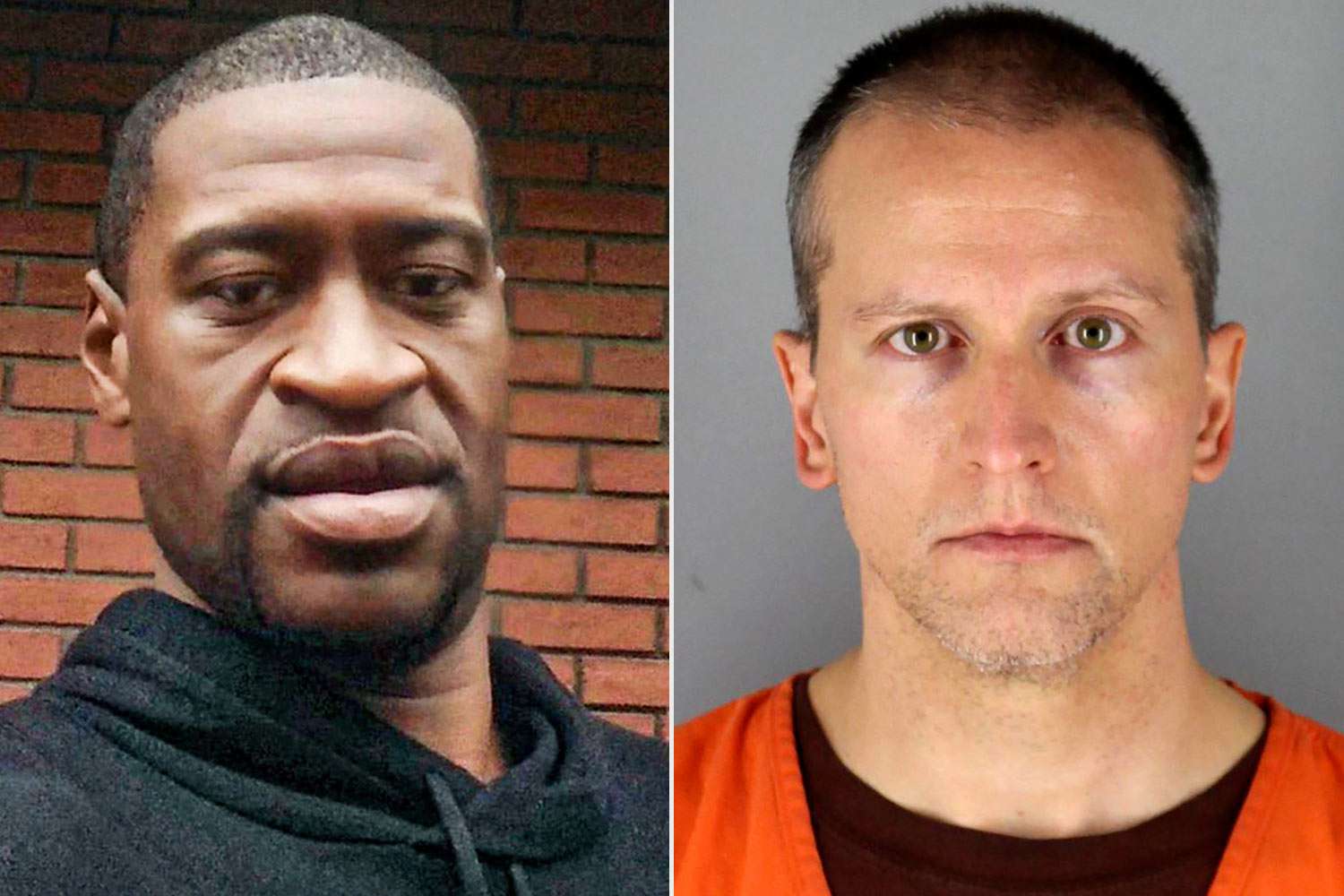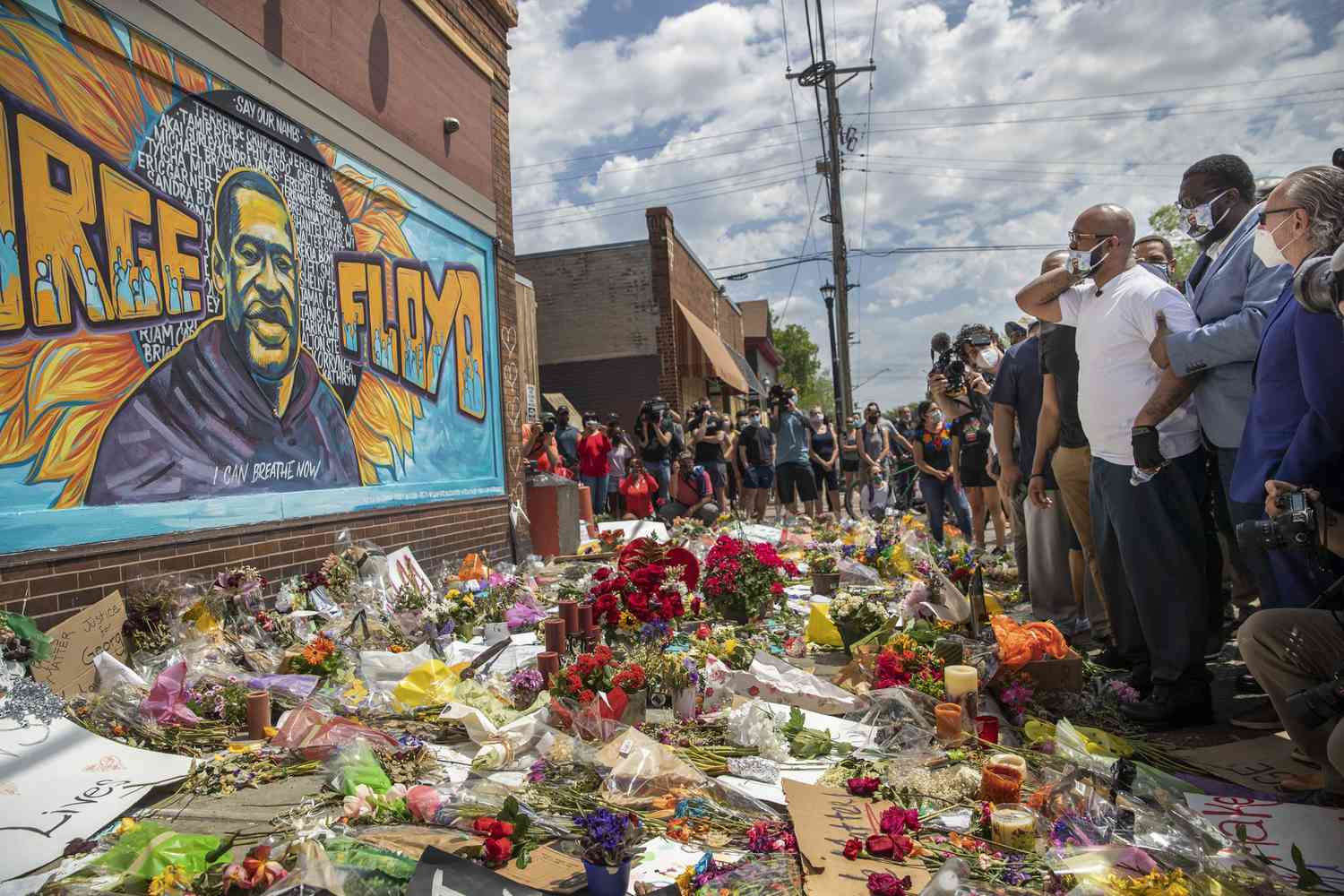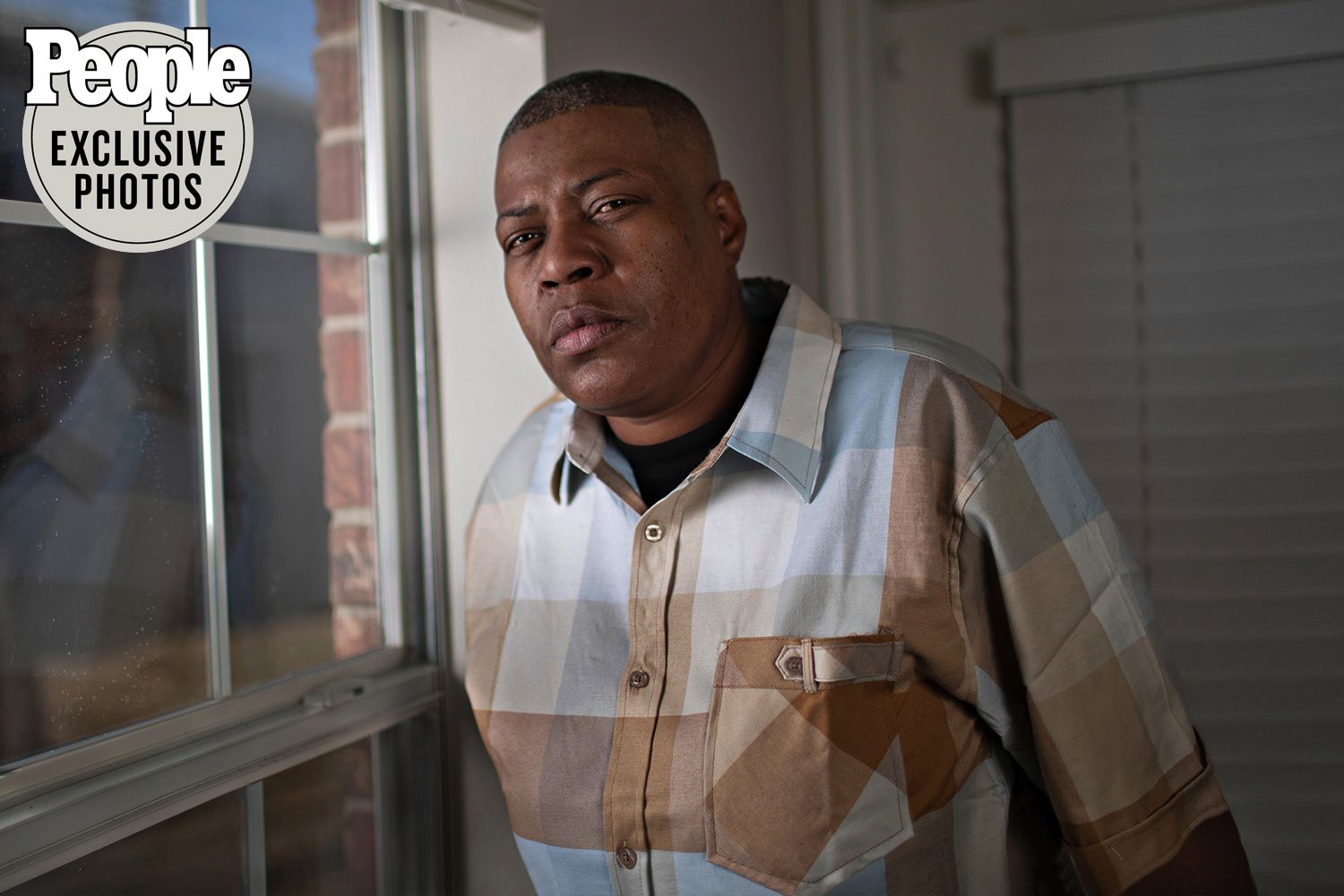The widely viewed viral video of George Floyd, repeatedly crying out "I can't breathe" as a Minneapolis police office presses a knee into his neck on the ground for nearly nine minutes, will take center stage again as that now-former officer's trial on charges of second-degree murder and manslaughter opens Monday.
Jury selection will fill the weeks before testimony is expected to begin March 29 and a verdict is rendered for Derek Chauvin, the officer who was fired after the May 25 incident, which sent millions into streets across the country and propelled the Black Lives Matter protest movement against police brutality.
Captured on widely shared bystander video, Floyd's death continues to reverberate: Last week in Washington, D.C., the House of Representatives passed and sent for Senate consideration the George Floyd Justice in Policing Act, a wide-ranging bill that aims to "hold law enforcement accountable for misconduct in court, improve transparency through data collection, and reform police training and policies," according to the document.
Among other provisions, the proposed legislation would ban chokeholds by federal law enforcement and create a national registry of reported police misconduct to be maintained by the Justice Department.
Chauvin, 44, has pleaded not guilty to the charges, which result from his detention of Floyd, 46, for allegedly spending a counterfeit $20 bill at a convenience store.
The Hennepin County medical examiner and a private pathologist hired by the Floyd family both concluded that Floyd's manner of death was homicide.
In a court filing, Chauvin's defense attorney, Eric J. Nelson, wrote that Chauvin "did exactly as he was trained to do." He added: "Any risk created by Mr. Chauvin's conduct lies largely with those who train [Minneapolis Police Department] officers and those who approve such training." Nelson did not respond to PEOPLE's request for comment.
But in filing the charges against Chauvin last June, Minnesota Attorney General Keith Ellison — whose office will oversee the prosecution — said Chauvin and three other former officers charged with related crimes "caused Mr. Floyd's death while using unlawful and excessive force in arresting Mr. Floyd."
The other officers on the scene – J. Alexander Kueng, Thomas Lane and Tou Thao — each were charged with aiding and abetting second-degree murder and second-degree manslaughter. They will be tried apart from Chauvin this summer. All also have each pleaded not guilty.
"My feeling about it is, there's no way you can pick 12 people that know nothing of this situation," Floyd's sister, 52-year-old LaTonya Floyd, of Houston, tells PEOPLE about the challenge of seating a jury. "I don't think that they can pick 12 people that have not seen my brother get murdered by this man on TV."
She says she and other members of Floyd's extended family — he is survived by six siblings, three of whom sit on the board of the George Floyd Memorial Foundation — planned to attend the trial in person. But a decision by the judge hearing the case, Peter Cahill, will limit attendance inside the court to only one Floyd family member at a time; the same holds true for members of Chauvin's family, although in each case, family members can rotate in and out, the judge said. The judge cited restrictions due to COVID precautions.
RELATED: George Floyd's Sister Says Brother Was 'Best Friend,' Recalls Favorite Song They'd Sing Together
"This has been a deeply painful and emotional year for every member of the Floyd family, many of whom intended to be in the courtroom to witness this trial," Ben Crump, an attorney for the Floyd family, said in a statement. "While they understand the judge's reasons to limit attendance in the courtroom, the family is understandably disappointed by this ruling. The family is looking forward to the start of the trial as a critical milestone on the path to justice and a step toward closure in this dark chapter of their lives."
Want to keep up with the latest crime coverage? Sign up for PEOPLE's free True Crime newsletter for breaking crime news, ongoing trial coverage and details of intriguing unsolved cases.
Floyd's sister Bridgett Floyd, 30, of Fayetteville, N.C., is president and chairwoman of the memorial foundation. She says of Chauvin: "He needs to see the people that he took my brother away from. We need to look at him in his eyes. I wouldn't dare not be there."
"I don't even know what he possibly can say, you know?," she says. "Because from what I've been told from family, friends, the way that video was — I haven't watched it and I don't know when I will watch it — I just don't even know what he possibly could say besides, 'I'm guilty.'"
At the trial's opening neared, Judge Cahill was tasked by a court of appeals to consider reinstating an additional charge against Chauvin of third-degree murder that Cahill had previously dismissed.
Twin Cities law enforcement officials launched what they called Operation Safety Net to assure order during and after the trial, after protests, some violent and with looting, broke out across the region in the wake of Floyd's death. A security perimeter was planned around the courthouse, Minneapolis City Hall and other government buildings, reports USA Today.
The goal is "prevention of damage to property and crimes, as well as also ensuring First Amendment constitutional rights for those who wish to peacefully assemble and demonstrate," Minneapolis Police Chief Medaria Arradondo said at a news conference last week, reports TV news station KARE.
"We believe it is on us to honor the magnitude of this moment," Minneapolis Mayor Jacob Frey said, according to USA Today, "and ensure that our families in this city feel safe."
Source: Read Full Article










